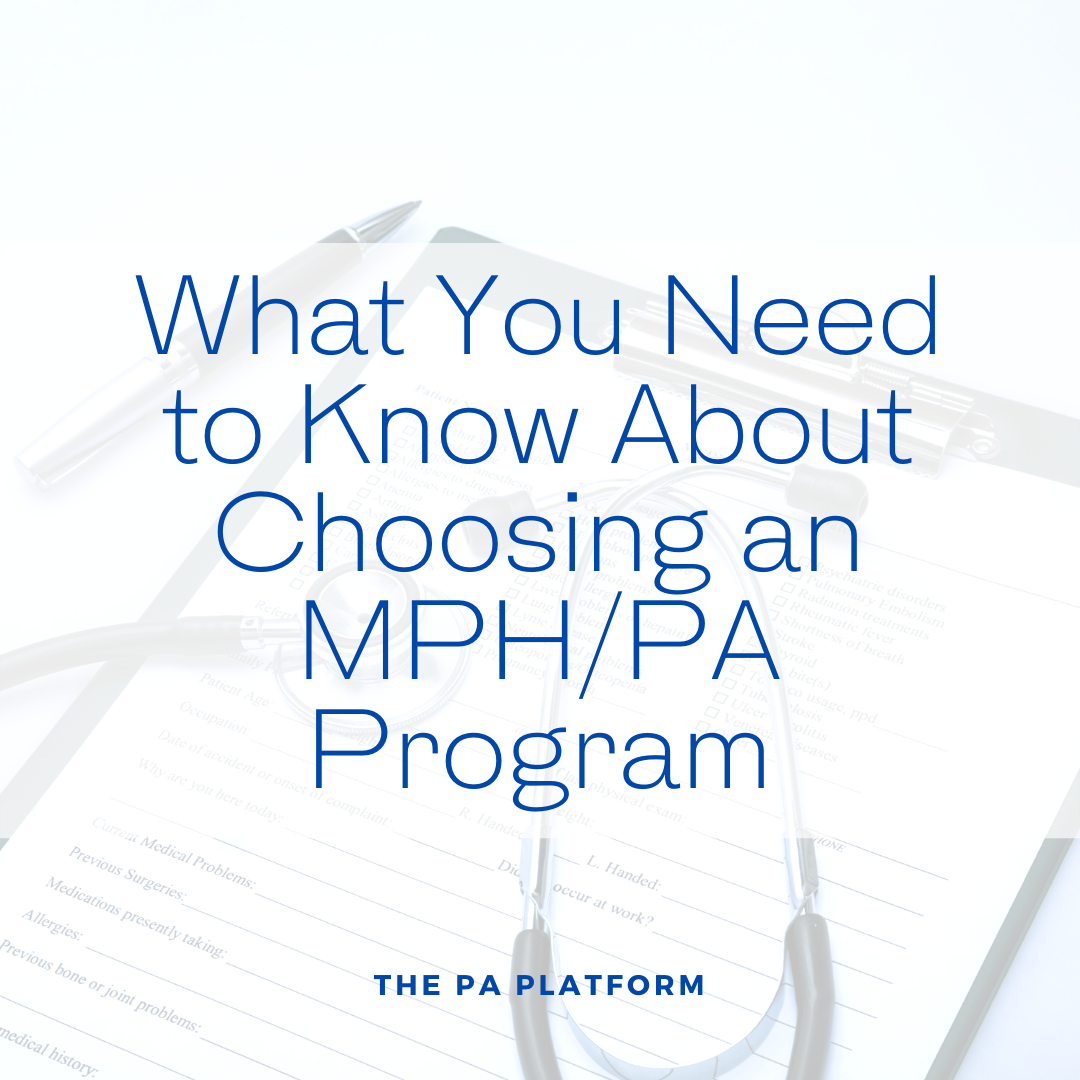This is a question that you can be expected to answer multiple time, even daily when you make the decision to become a PA. Here is one PA's answer to the common question of "Why PA?"
I stumbled upon the profession by chance. I was a junior in high school when a friend of mine casually brought up the title Physician Assistant. I had no concept of what it meant to be a PA but I was intrigued. Luckily for me the internet was swarming with information so I quickly learned the vital role PAs play in medicine.
Once you graduate from a PA Program and receive your license you can start working in the specialty of your dreams - it seemed unreal. In addition, as a PA you have the autonomy to actively manage patients beside a doctor. Your job description can widely vary depending on the area of medicine which you are employed. Although all PAs require a "supervising physician" in order to practice, this does not mean that a doctor is present during all of your patient interactions. Many PAs actually have their ownschedule of patients they independently care for. Picture this: You see a patient, obtain a history, perform a physical exam and find that they have developed an infection. As a PA you are then able to initiate a treatment plan. If your plan includes ordering lab tests and writing a prescription for antibiotics, you can make those decisions without having to consult with a doctor. However, if something seems unusual or you are not quite sure how to proceed forward, you have the comfort of asking your supervising physician for guidance. I feel that is actually one of the most comforting aspects of the profession, I am never alone. I always have someone I can bounce ideas off of and to rely on if I hit a crossroad.
Another appealing facet of the profession is you can work as little as 3 days a week in some specialties and consider yourself full time! In other words, working as a PA it is possible to establish a great work life balance. In addition, if your ever need to supplement your income there are ample opportunities to pick up extra shifts. I am constantly receiving job opportunities from recruiters for per diem and locum tenens positions. Working part time or even taking a hiatus from your career is not uncommon. In 2015 the NCCPA found 1,481 PAs were not in clinical practice due to family responsibilities. For example, I am taking time off from my clinical duties to be at home with my newborn daughter. I love having the comfort in knowing that when I am ready to re-enter practice again, I will be able to find a job suitable for me.
Duke University established the first PA program in 1965. For a profession that birthed its first three PAs in 1967, PAs have come a long way. At the end of 2014 there were 101,977 board certified PAs in the country. I consider myself lucky to be a part of the movement, and so should you!
Charishma Nayyar Mankikar, PA-C, is a plastic surgery physician assistant and the founder of PAsRISE.com

















